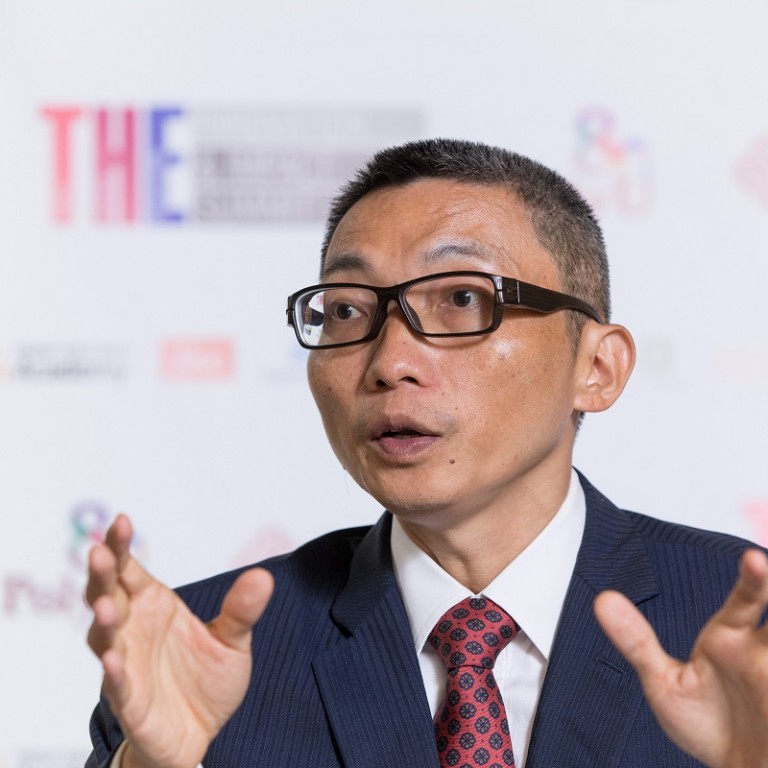
Innovating for a better world
[Sponsored article] Renowned technology entrepreneur and philanthropist Charles Chen Yidan firmly believes that university has a significant role to play in inspiring and driving innovation so as to make a better world.
[Sponsored article] Renowned technology entrepreneur and philanthropist Charles Chen Yidan firmly believes that university has a significant role to play in inspiring and driving innovation so as to make a better world.
Speaking in an interview with South China Morning Post, Chen expresses his views on driving innovation to reframe the education system.
When asked what innovation means to him, Chen suggests it is “an engine that drives the development of human beings.”
He further explains that ever since the beginning of the first industrial revolution, the development of technology has been the driving force behind innovation. “And, with the application of technology, people’s lives become more meaningful,” Chen says.
Communication is a prime example of how technology has helped innovative thinking. “In the old days, people sent letters to one another,” says Chen. “Nowadays, they can communicate through email and other messaging platforms. We are seeing similar changes in other fields, too. For instance, the operation of various industries like retail and logistics has transformed into the e-commerce model.”
However, Chen believes that despite these changes in the working world, the education system remains relatively unchanged. And, he thinks that significant reform is long overdue.
“Education system is very complicated,” says Chen. “It involves not only public policy, teachers and students but school staff and parents as well, making it difficult to reform.”

Although technology is being used in education, it is only helping to increase the efficiency in certain aspects rather than driving system reform. However, Chen is optimistic that the advancement of innovation and technology will bring about educational reform one day, and ultimately benefit the development of mankind.
Chen believes that universities have a significant role to play in driving innovation. He cites The Hong Kong Polytechnic University (PolyU) as an example of a university that conducts and applies innovative research in a way that addresses social needs for the betterment of Hong Kong, the nation and the world.
An example of this would be the school’s optical fibre sensing technology which has been installed on tracks all over Hong Kong to monitor railway conditions. It has also been installed on the mainland’s Beijing-Shanghai High-Speed Rail Link and the two busiest lines of Singapore’s metro network.
Chen suggests that both industry and education sector would benefit from partnership and innovation. Specifically, he thinks that universities can nurture the innovative talents that industries need to thrive.
“Private enterprises can do more than providing internships,” says Chen. “They can join forces with universities to assist with curriculum development.”
Chen cites Wuhan College, China’s first private non-profit university as being an institution that tries to combine the industry and education realms. The college’s industry partners, including Huawei and Tencent, have been participating actively throughout the course of programme delivery, from designing curriculum, sending teaching instructors, to offering internship placements to students, which enables students to understand the cutting-edge technology in use.
Innovation and technology are not the only things that this techpreneur sees. Chen emphasises that when it comes to education, all-round personality development of students is of no less importance to which Wuhan College accords top priority.
Innovation and transformation
Charles Chen Yidan believes that innovation can transform global education. This was the thought that inspired the core founder of Tencent Holdings Limited to establish the Yidan Prize in 2016, aimed at recognising individuals whose work transforms education in innovative ways all over the world.
The high-profile technology entrepreneur and philanthropist recently travelled to Hong Kong to deliver a keynote speech at the inaugural Times Higher Education (THE) Innovation & Impact Summit co-hosted by The Hong Kong Polytechnic University (PolyU) and THE, offering his insights into “leveraging innovation for scalable changes in education around the world.”
The summit held between 31 May and 2 June, was also a key celebratory event of PolyU’s 80th anniversary.

